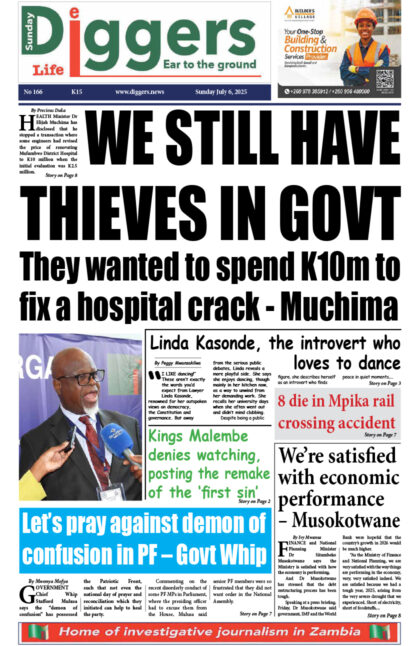MUHANYA Solar Limited managing director Geoffrey Kaila says the kwacha’s rapid depreciation against major convertible currencies, coupled with the COVID-19 pandemic, has put pressure on local businesses in Zambia.
And Zambia Association of Manufactures (ZAM) vice-president Chipego Zulu says government move to ease liquidity by injecting K2.5 billion into the local economy will be in vain due the kwacha’s huge losses against major convertible currencies.
According to market players, the kwacha sharply depreciated to hit an historic K18 per dollar psychological barrier for the first time in Zambia’s history by close of business last Tuesday.
And by close of business, Friday, the local currency had posted further losses to slide to an average K18.60 and K18.95 per dollar for bid and offer, respectively, according to First National Bank (FNB) Zambia.
In an interview, Kaila disclosed that imported goods had become expensive due to the continued kwacha depreciation, which had the effect of pushing prices up and shrinking business volumes, leading to reduced consumer spending.
“Well, prices have gone up and the numbers of customers buying has reduced. As regard the COVID-19 virus, I wouldn’t say much about other businesses because I wouldn’t know, I am working from home, we have closed. We are only getting enquiries through phone (calls). If we do close a deal that is when we are mobilizing technical things so it is really tough! The price increase is due to the kwacha depreciation to other currencies,” said Kaila.
“Both the kwacha and COVID-19 are affecting the business. We are not yet rock bottom, but the effects on the business is significant. Imports are still coming in, cargo planes are coming; we are still receiving goods from the USA. People are still willing to buy our goods and services so there is a very wide spectrum. Of course, the individual customers have reduced. Business is going on at a reduced rate; the COVID-19 and depreciation of kwacha have slowed down business.”
And Zulu said the kwacha depreciation will negatively affect government’s move to inject liquidity amounting to K2.5 billion into the local economy due the drastic rise in prices for commodities brought on by the kwacha devaluation.
Finance Minister Dr Bwalya Ng’andu announced that government will release K2.5 billion to dismantle domestic arrears and ease liquidity challenges faced by contractors and suppliers in the country amidst the virus pandemic.
“I certainly think that increasing liquidity in the Zambian market, we are already having a challenge with liquidity prior to COVID-19 and the recommendations were that we needed to dismantle arrears. So, COVID-19 is bringing in a new spanner into the works; we have to recognize the fact that our Treasury and its ability to respond was already constrained so whereas the amount of that has been recommended has a level of relief to increase liquidity, even on dismantling of arrears to the contractors, this is a welcome move, definitely. However, given the fact that our exchange rate, for example, our position with the kwacha continues to deteriorate, there are a lot of challenges with that; there are issues to deal with inflation,” said Zulu.
“So, in as much as we are doing what we can to enhance liquidity in the market, there are other fundamental factors that are making this an even tighter economic situation for Zambia. Going forward, we do have to look at some long-term measures and look beyond COVID-19 to better establish how the country can respond in a way that will minimize the impact of COVID-19 on the overall performance of the economy.”



















